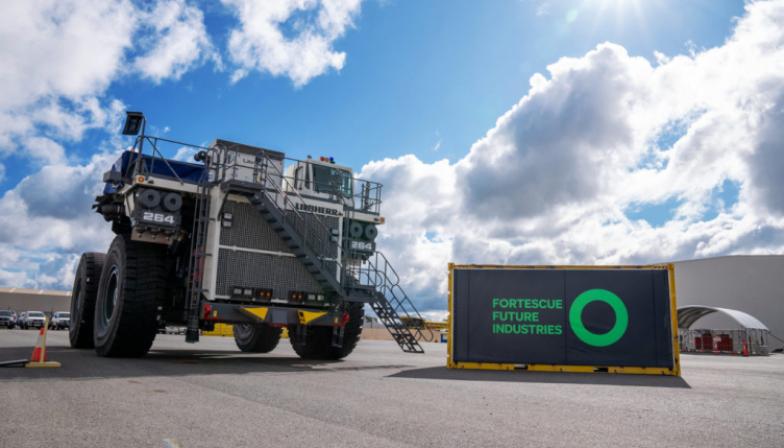Australia's Fortescue Metals Group said Tuesday it will spend an estimated $6.2 billion to phase out fossil fuels and achieve "real zero-emissions on Earth" at its iron ore mines by the end of the decade.
The investment includes the installation by a mining company in Perth of an additional 2-3 gigawatts of renewable energy generation and batteries, as well as additional costs associated with strengthening the green mining fleet and locomotives.
The investment, planned primarily for fiscal years 2024-2028, will displace about 700 million liters of diesel fuel and 15 million gigajoules of gas per year by 2030, and prevent the release of 3 million tons of carbon dioxide equivalent per year, the miner said.
The world's fourth-largest iron ore producer projects $3 billion in cumulative operating savings by 2030 with a return on investment by 2034 and expects to save $818 million annually in costs starting in 2030.
Real ground zero emissions refer to direct and indirect emissions from the activities of the firm, as well as from the production of purchased electricity, steam, etc.
Fortescue and its green energy division Fortescue Future Industries (FFI) are trying to rapidly develop the infrastructure and technology to produce green hydrogen as the mining company transitions from a simple iron ore producer to a green energy firm.
The mining company, led by chairman and iron ore mogul Andrew Forrest, has committed $600 million to $700 million in FFI capital expenditures in fiscal 2023 to build a fully green hydrogen supply chain by the end of the decade, potentially positioning itself as a key player in the alternative fuel pool.
“There is no doubt that the energy landscape has changed dramatically over the past two years, and those changes have accelerated since Russia’s invasion of Ukraine,” Forrest said Tuesday.
The mining company expects "attractive economic returns" from operating cost savings after removing diesel, natural gas and carbon offset purchases from its supply chain, he added.



